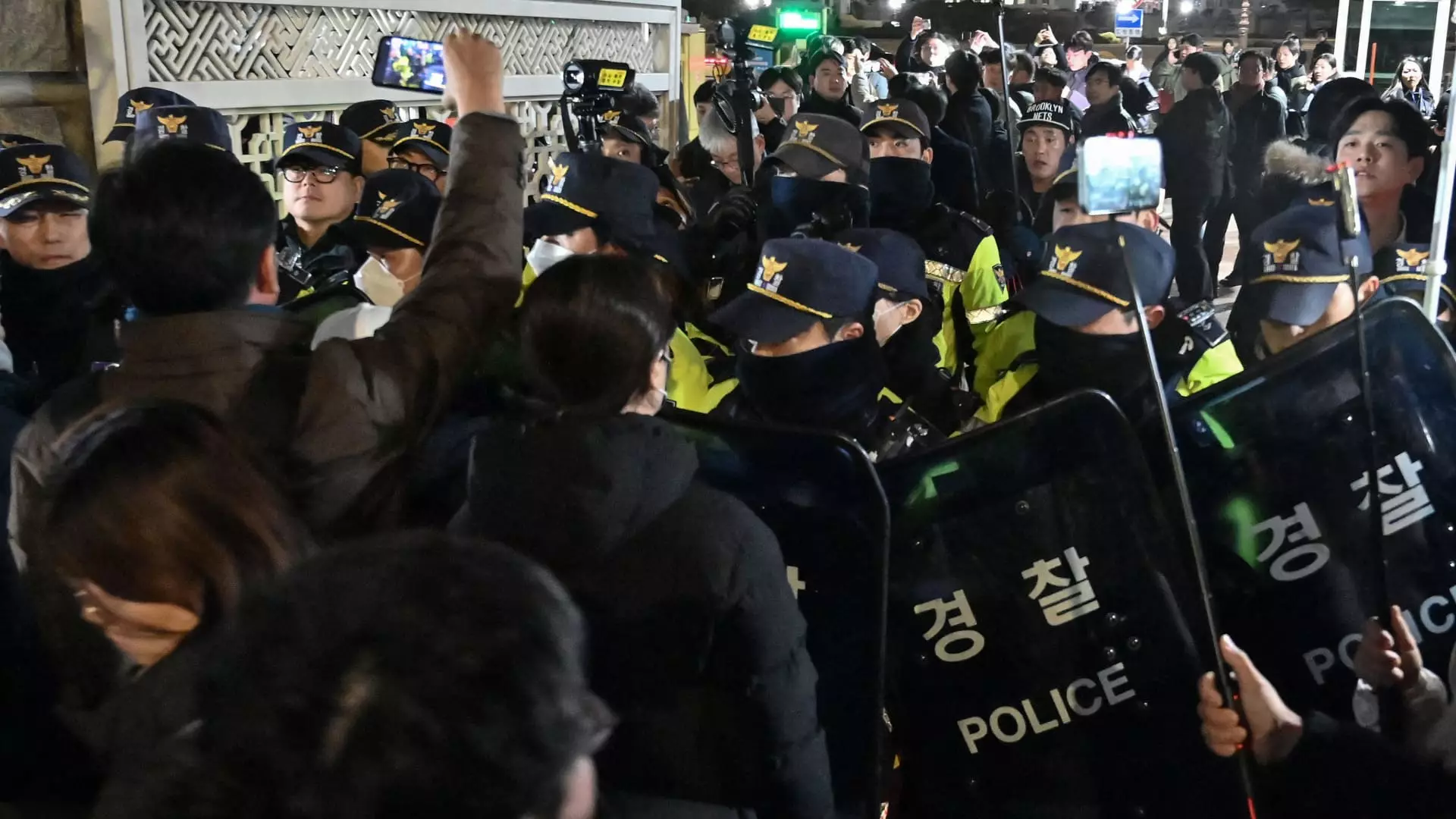South Korea’s financial markets experienced a significant downturn this week following President Yoon Suk Yeol’s unsettling declaration of a martial law, a move that incited widespread concern regarding political stability within the nation, the world’s 13th largest economy. The iShares MSCI South Korea ETF, which serves as a barometer for major corporations across the nation, plummeted nearly 7%, momentarily setting a 52-week low before retracting slightly to close down 2.4%. This staggering drop reflected the initial shock felt by investors and market participants, signaling a lack of confidence in the government’s ability to navigate this unprecedented political crisis.
In an additional blow to the financial landscape, several major South Korean companies reported sharp declines in their American Depositary Receipts (ADRs). Notable losses included Korea Electric Power, which saw a 5% drop, and Coupang, a prominent player in the e-commerce sector, which lost 6% of its value. Other companies, including KT Corporation and the steel manufacturing giant Posco, also reported declines of 3% and over 6% respectively. This collective downturn sheds light on how interlinked the stability of South Korea’s political environment is with its commercial and economic viability, as investor sentiment reacts swiftly to political upheaval.
Swift Legislative Action Against Martial Law
In a rapid response to President Yoon’s controversial declaration, more than half of the National Assembly lawmakers convened within just three hours to challenge the emergent martial law order. This swift legislative action is noteworthy, as it underscores the deep divisions within South Korean politics, where tensions between the ruling government and opposition parties have escalated. Yoon’s claims that opposition figures harbor sympathies with North Korea hints at a broader political narrative that seeks to consolidate power and suppress dissent under the guise of maintaining national security.
With over 190 of the 300 lawmakers voting to overturn the martial law, the legislative body displayed a significant level of agency aimed at safeguarding democratic processes and political freedoms. The president’s vague assertions regarding the implications of martial law on governance have raised considerable alarms among citizens and lawmakers alike, suggesting that the potential for widespread unrest exists if political tensions remain unresolved. The imposition of martial law, which restricts political activities and prohibits acts labeled as “inciting social disorder,” has elicited nostalgia for past authoritarian regimes, marking a particularly delicate moment in South Korean history.
Global Market Responses and the Future Outlook
The ramifications of this political turmoil extended beyond South Korea’s borders, affecting currency markets as well. The U.S. dollar experienced a noticeable surge against the South Korean won, climbing by 1.9% on the news. Such fluctuations indicate a flight to safety among investors, as the fear of instability prompts global market participants to reassess their exposure to South Korean assets.
Looking ahead, the Korea Exchange has announced plans to hold an emergency meeting to formulate an appropriate response to the market fallout, indicating that officials recognize the gravity of the situation. The potential long-term consequences of this political crisis could lead to economic stagnation if confidence is not swiftly restored. Even as lawmakers work to rectify the situation, the interplay between political authority and market stability remains precarious. Whether South Korea can navigate this turbulent period while avoiding deeper economic ramifications hinges on a return to political normalcy and public trust in its democratic institutions.

